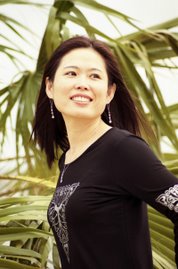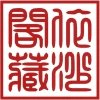I could not finish reading the book. It is nice writing but too drifted to concentrate on.
Richard White: The Organic Machine - The Remaking of the Columbia River
The flow of the river is energy, so is the electricity that comes from the dams that block that flow. Human labor is energy; so are the calories stored as fat by salmon for their journey upstream. Seen one way, energy is an abstraction; seen another it is as concrete as salmon, human bodies, and the Grand Coulee Dam. I will measure the book's success by the extent to which it surprises its readers, catches them off guard, and forces them to think in new ways not merely about the Columbia but about nature and its relation to human beings and human history.
My argument in this book is that we cannot understand human history without natural history; and verse visa. The two have been intertwined for millennia. ... history has seemed less and less about things or ideas or individual persons and more and more about relationships. Nature, at once a cultural construct and a set of actual things outside of us and not fully contained by our constructions, needs to be put into human history.
Contents
----------------------------------------
1. Knowing Nature through Labor
2. Putting the River to Work
3. The Power of the River
4. Salmon
1. Knowing Nature through Labor
----------------------------------------
The world is in motion. Tectonic plates drift across a spinning planet. Mountains are lifted up and eroded to the sea. Glaciers advance and retreat. All natural features move, but few natural features move so obviously as rivers. Our metaphors for rivers are all metaphors of movement: they run and roll and flow.
Like us, rivers work. They absorb and emit energy; they rearrange the world.
For much of human history, work and energy have linked humans and rivers, humans and nature.
... Without solar energy to move the water inland and uphill, rivers would never begin; without gravity to propel the water downhill back toward the ocean, rivers would never flow. (P.6)
Physicists define energy as the capacity to do work. Work, in turn, is the product of a force acting on a body and the distance the body is moved in the direction of the force.
Rivers constantly adjust; they compenate for events that affect them. They are, in this sense, historical: products of their own past history.
In English the words "energy" and "power" have become virtually interchangeable. Horsepower is, for example, a technical measure of energy. But we also speak metaphorically of the power of the state. Thompson spoke of being "in the power" of the Indians. The conflation is partially metaphorical, but it also arises because both meanings involve the ability to do work, to command labor. To be powerful is to be able to accomplish things, to be able to turn the energy and work of nature and humans to your own purposes.
We conflate energy and power, the natural and the cultural, in language, but they are equally mixed as social fact at the rapids and portages. The energy system of the Columbia determined where humans would portage, but human labor created the actual route of the portage, and human social relations determined its final social form and outcome.
2. Putting the River to Work
----------------------------------------
3. The Power of the River
----------------------------------------
4. Salmon
----------------------------------------




